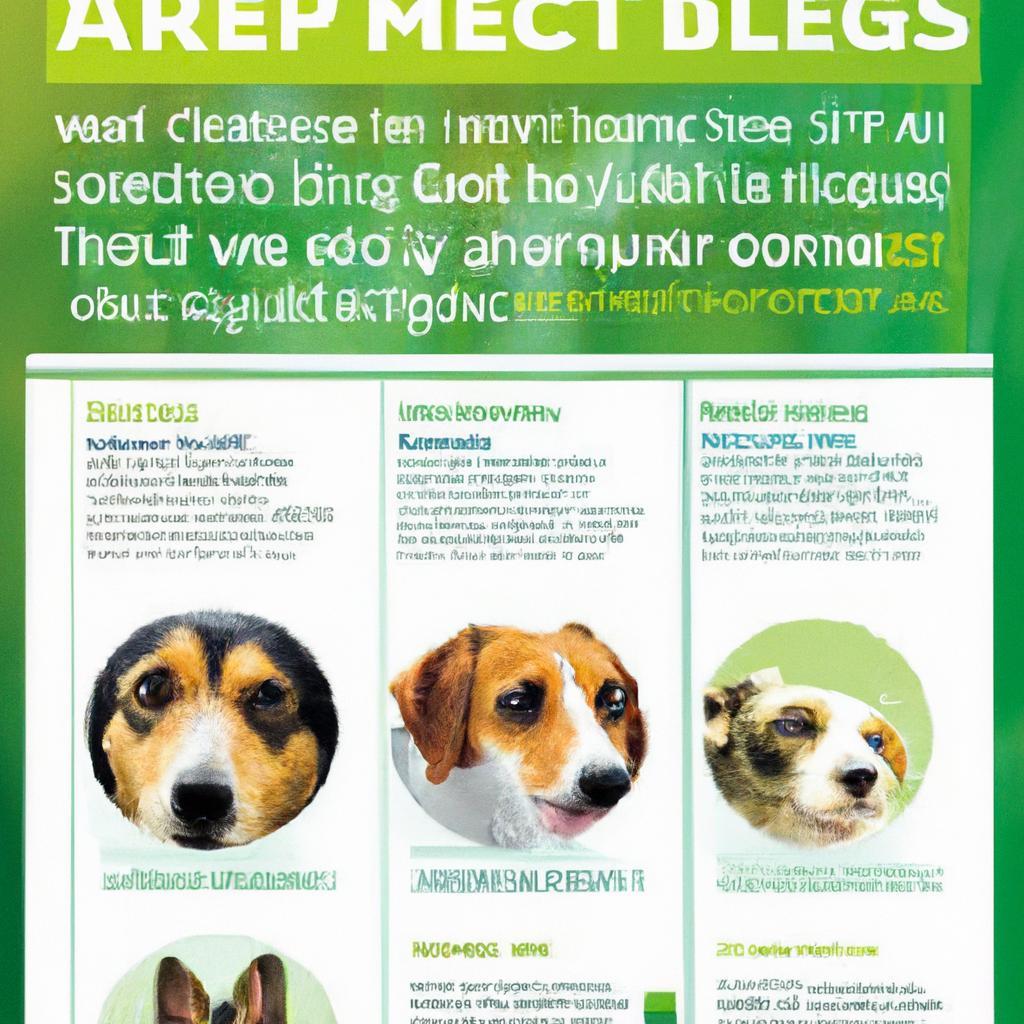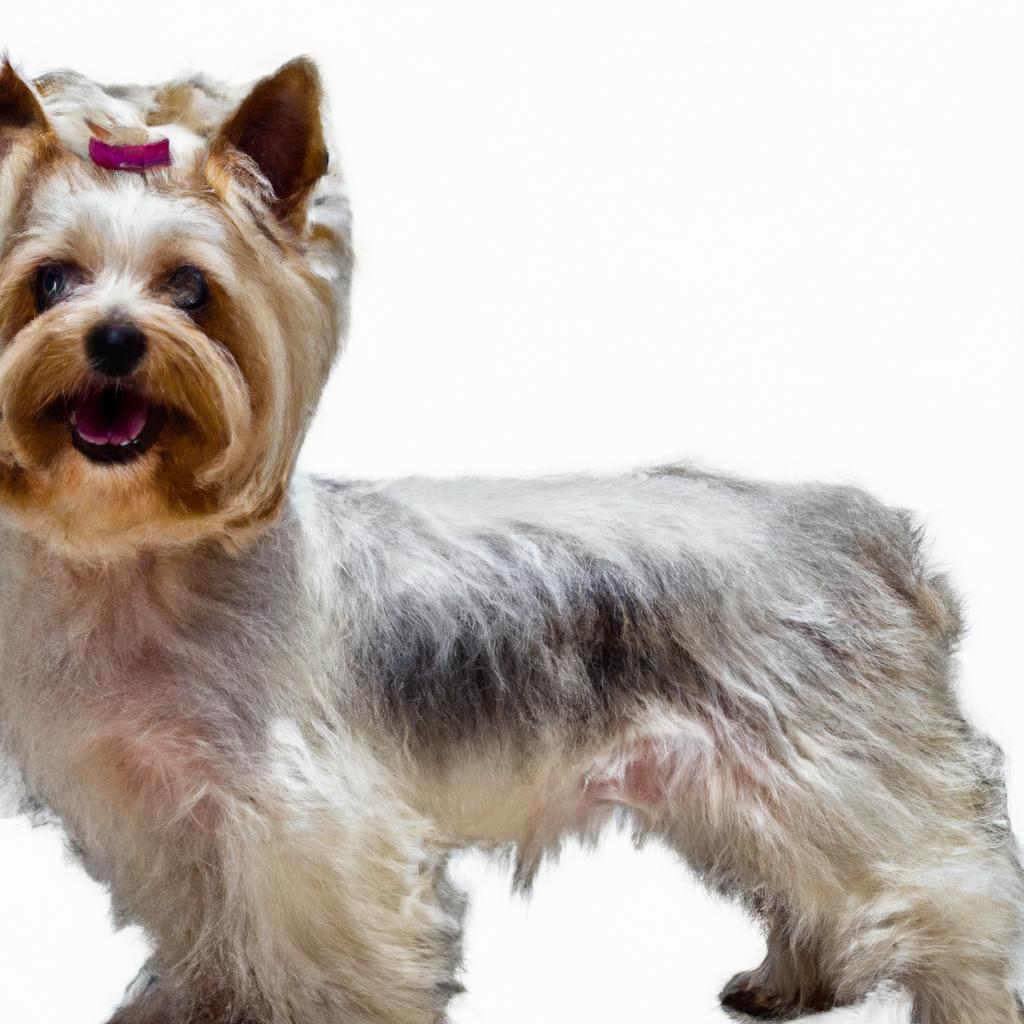Meet Sarah, a dedicated dog lover who longed for a furry companion but struggled with allergies. After countless sleepless nights, she discovered hypoallergenic breeds like the Poodle and Bichon Frise. These dogs produce fewer allergens, allowing Sarah to enjoy cuddles without the sneezes. With their playful nature and intelligence, they quickly became her perfect match. If you’re seeking a loyal friend without the allergy woes, consider a hypoallergenic breed. Your dream dog awaits!
Contents
- Understanding Hypoallergenic Dog Breeds and Their Unique Traits
- Top Hypoallergenic Breeds for Allergy Sufferers and Their Care Needs
- Debunking Myths: The Truth About Hypoallergenic Dogs
- Choosing the Right Hypoallergenic Breed for Your Lifestyle and Home Environment
- Q&A
Understanding Hypoallergenic Dog Breeds and Their Unique Traits
When considering a dog that is less likely to trigger allergies, it’s essential to understand that no breed is completely hypoallergenic. However, certain breeds are known to produce fewer allergens, making them more suitable for allergy sufferers. These breeds often have hair instead of fur, which reduces the amount of dander and hair shed in the home. This unique trait allows for a cleaner environment, minimizing the risk of allergic reactions.
Among the most popular hypoallergenic breeds are:
- Poodle: Available in standard, miniature, and toy sizes, Poodles have a curly coat that traps dander and hair, preventing it from spreading in the home.
- Bichon Frise: With their soft, curly coats, Bichon Frises are not only adorable but also produce less dander, making them a great choice for allergy sufferers.
- Portuguese Water Dog: This breed features a dense, curly coat that is similar to a Poodle’s, providing a hypoallergenic option for families.
- Schnauzer: Available in miniature, standard, and giant sizes, Schnauzers have a wiry coat that requires regular grooming, which helps control allergens.
Another important aspect of hypoallergenic breeds is their grooming needs. Regular grooming not only keeps their coats healthy but also helps to manage allergens effectively. Many hypoallergenic breeds require professional grooming every few weeks to maintain their coat and minimize shedding. This commitment to grooming can be a rewarding experience, as it strengthens the bond between the dog and its owner while ensuring a cleaner living space.
In addition to their unique coats, hypoallergenic breeds often exhibit friendly and affectionate temperaments. Many of these dogs are known for their intelligence and trainability, making them excellent companions for families and individuals alike. Their playful nature and loyalty can provide emotional support, which is especially beneficial for those with allergies who may feel limited in their pet choices. By choosing a hypoallergenic breed, you can enjoy the companionship of a dog without compromising your health.
Top Hypoallergenic Breeds for Allergy Sufferers and Their Care Needs
For those who suffer from allergies, finding a dog that won’t trigger symptoms can be a daunting task. Fortunately, several breeds are known for producing fewer allergens, making them ideal companions for allergy sufferers. These breeds typically have hair instead of fur, which reduces the amount of dander and saliva that can cause allergic reactions. Some of the most popular hypoallergenic breeds include:
- Poodle – Available in standard, miniature, and toy sizes, Poodles have a curly coat that traps dander and hair, preventing it from spreading in the home.
- Bichon Frise – With their soft, curly coats, Bichon Frises are not only adorable but also produce less dander, making them a great choice for allergy sufferers.
- Portuguese Water Dog – Known for their energetic nature and intelligence, these dogs have a dense, curly coat that minimizes shedding and dander.
- Shih Tzu – With their long, flowing coats, Shih Tzus require regular grooming, which helps control allergens while providing a beautiful appearance.
Caring for hypoallergenic breeds involves regular grooming and maintenance to keep their coats healthy and minimize allergens. Frequent brushing helps remove loose hair and dander, while regular baths can further reduce the buildup of allergens. It’s essential to establish a grooming routine that suits the specific needs of the breed, as some may require more frequent attention than others. Additionally, investing in high-quality grooming tools can make the process more efficient and enjoyable for both you and your pet.
In addition to grooming, maintaining a clean living environment is crucial for managing allergies. Regular vacuuming with a HEPA filter, washing pet bedding, and using air purifiers can significantly reduce allergens in your home. It’s also advisable to create pet-free zones, such as bedrooms, to provide a safe space for allergy sufferers. By implementing these practices, you can enjoy the companionship of a hypoallergenic dog while minimizing allergy symptoms.
Lastly, it’s important to remember that individual reactions to dog breeds can vary. Spending time with a specific breed before making a commitment can help gauge your sensitivity to them. Consider visiting a local shelter or breeder to interact with hypoallergenic breeds and see how your body responds. With the right breed and proper care, you can find a furry friend that fits seamlessly into your life, allowing you to enjoy the unconditional love and joy that dogs bring without compromising your health.
Debunking Myths: The Truth About Hypoallergenic Dogs
When it comes to choosing a dog that won’t trigger allergies, many people mistakenly believe that hypoallergenic breeds are completely allergy-free. The truth is, no dog is entirely hypoallergenic. Instead, certain breeds produce fewer allergens than others, making them more suitable for allergy sufferers. Understanding this distinction is crucial for potential dog owners who are sensitive to pet dander.
Another common myth is that hypoallergenic dogs don’t shed at all. While it’s true that some breeds shed less fur, they still produce dander, saliva, and urine, which can all contribute to allergic reactions. Breeds like the **Poodle**, **Bichon Frise**, and **Portuguese Water Dog** are often recommended for allergy sufferers due to their low-shedding coats, but regular grooming and cleaning are essential to minimize allergens in the home.
Many people also assume that smaller dogs are inherently hypoallergenic. This is not necessarily the case. Allergens are not determined by size but rather by the specific breed’s coat type and grooming needs. Larger breeds, such as the **Giant Schnauzer** or **Irish Water Spaniel**, can also be suitable for those with allergies, proving that size is not the sole factor in selecting a hypoallergenic companion.
Lastly, some individuals believe that adopting a dog from a shelter or rescue organization means they will be less likely to find a hypoallergenic breed. However, many shelters have a variety of breeds, including those known for being hypoallergenic. It’s essential to communicate your needs with the shelter staff, who can help match you with a dog that fits your lifestyle and allergy concerns. Remember, thorough research and understanding of each breed’s characteristics are key to finding the right furry friend for your home.
Choosing the Right Hypoallergenic Breed for Your Lifestyle and Home Environment
When selecting a hypoallergenic dog breed, it’s essential to consider your lifestyle and home environment. Different breeds have varying energy levels, grooming needs, and temperaments, which can significantly impact your day-to-day life. For instance, if you lead an active lifestyle, breeds like the **Poodle** or **Portuguese Water Dog** may be ideal, as they thrive on physical activity and enjoy outdoor adventures. On the other hand, if you prefer a more relaxed atmosphere, consider breeds such as the **Bichon Frise** or **Maltese**, which are known for their calm demeanor and adaptability to indoor living.
Another crucial factor is the size of your living space. Larger breeds, such as the **Irish Water Spaniel**, require more room to roam and play, making them better suited for homes with ample space or access to a yard. Conversely, smaller breeds like the **Yorkshire Terrier** or **Shih Tzu** can comfortably thrive in apartments or smaller homes. Assessing your living situation will help you choose a breed that fits seamlessly into your environment, ensuring both you and your new pet are happy.
Grooming requirements also play a significant role in your decision-making process. Some hypoallergenic breeds, such as the **Schnauzer** and **Labradoodle**, require regular grooming to maintain their coats and minimize shedding. If you’re willing to invest time and resources into grooming, these breeds can be a great fit. However, if you prefer a low-maintenance option, consider breeds like the **Basenji**, which have minimal grooming needs and are known for their cleanliness.
Lastly, consider the breed’s temperament and compatibility with your family. If you have young children or other pets, breeds like the **Cavalier King Charles Spaniel** or **Soft Coated Wheaten Terrier** are known for their friendly and sociable nature. It’s essential to choose a breed that aligns with your family dynamics to foster a harmonious living environment. By carefully evaluating these factors, you can find the perfect hypoallergenic breed that complements your lifestyle and enhances your home life.
Q&A
-
What does hypoallergenic mean in relation to dog breeds?
Hypoallergenic dog breeds are those that are less likely to trigger allergic reactions in sensitive individuals. This is typically due to lower levels of shedding and dander, which are common allergens found in dogs.
-
Which dog breeds are considered hypoallergenic?
Some popular hypoallergenic breeds include:
- Standard Poodle
- Bichon Frise
- Portuguese Water Dog
- Shih Tzu
- Yorkshire Terrier
-
Can hypoallergenic dogs still cause allergies?
While hypoallergenic breeds are less likely to cause allergies, no dog is completely free of allergens. Individual reactions can vary, so it’s essential to spend time with a breed before making a commitment.
-
What can I do to minimize allergic reactions if I choose a hypoallergenic dog?
To reduce allergic reactions, consider the following:
- Regular grooming and bathing of your dog
- Using air purifiers in your home
- Establishing pet-free zones
- Cleaning your home frequently to reduce dander
choosing a hypoallergenic dog breed can significantly enhance your quality of life, especially for allergy sufferers. By selecting the right breed, you can enjoy the companionship of a loyal pet without compromising your health. Make an informed choice today!

大家好,我是彼得潘,專業的手法身體治療師。我喜歡探索和研究各種主題,並透過與人工智慧的合作分享專業、實用、有趣的文章。我們定期進行人工審核,以確保內容的準確性。如果您發現文章中有任何不準確的地方,請隨時與我們聯繫,我們會及時糾正。您可以透過 [email protected] 與我們聯繫。



